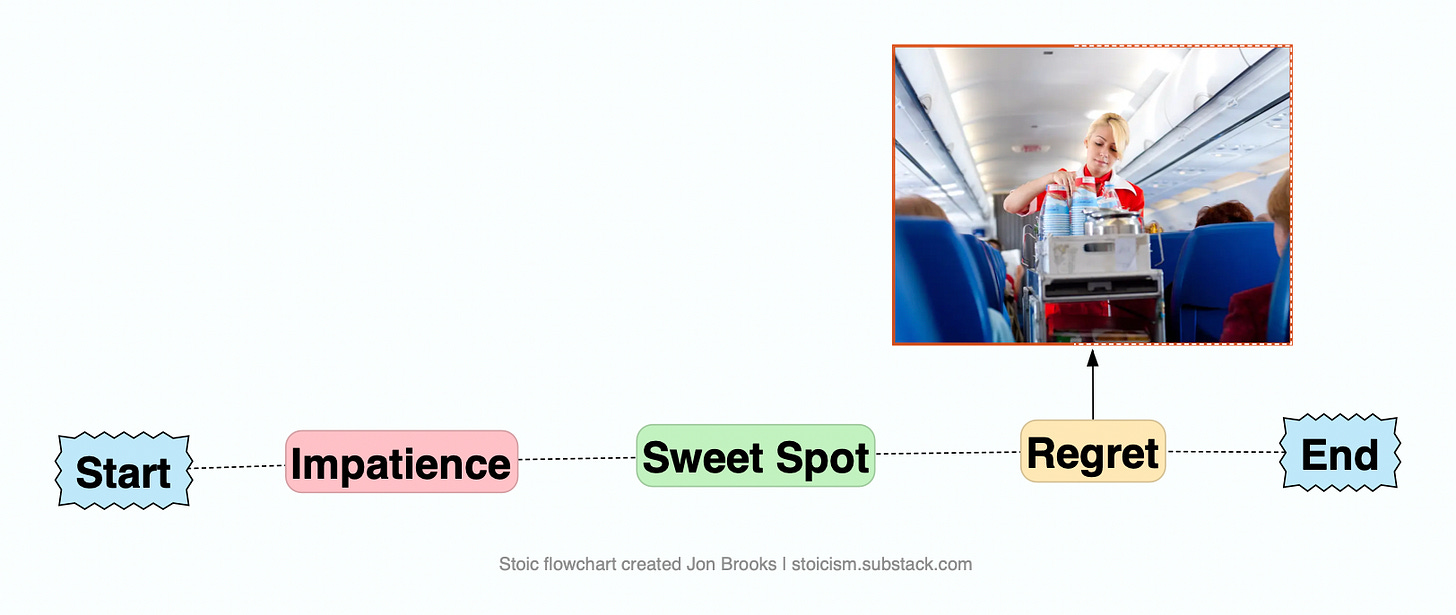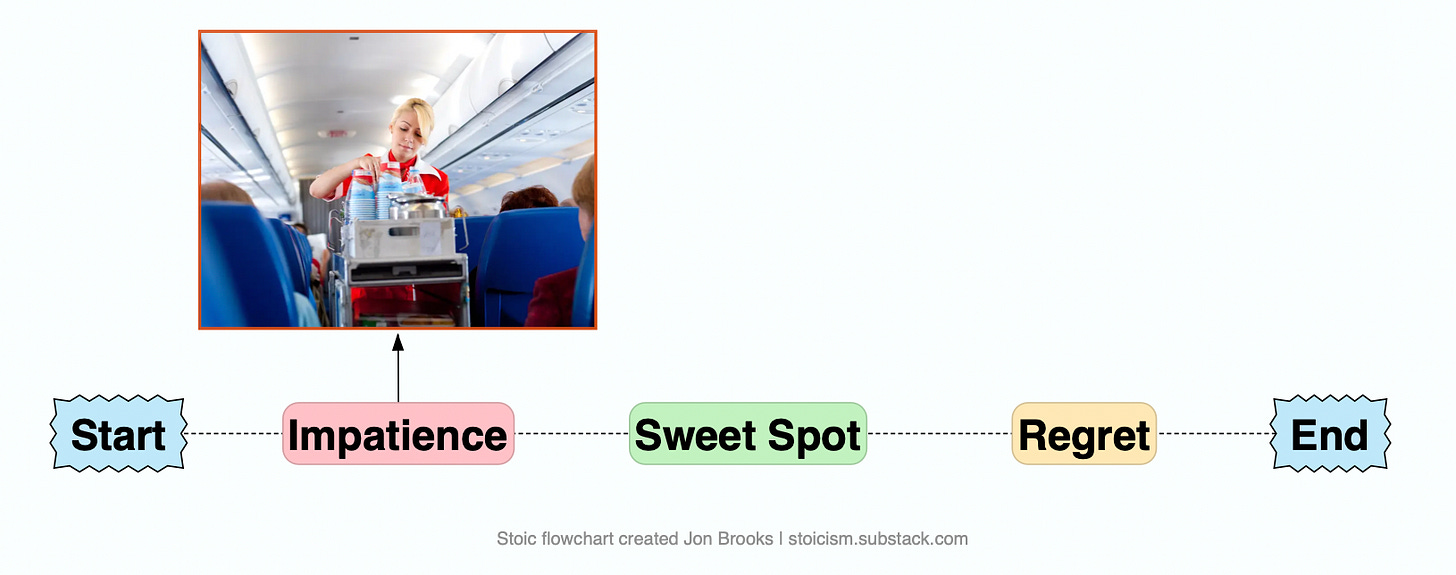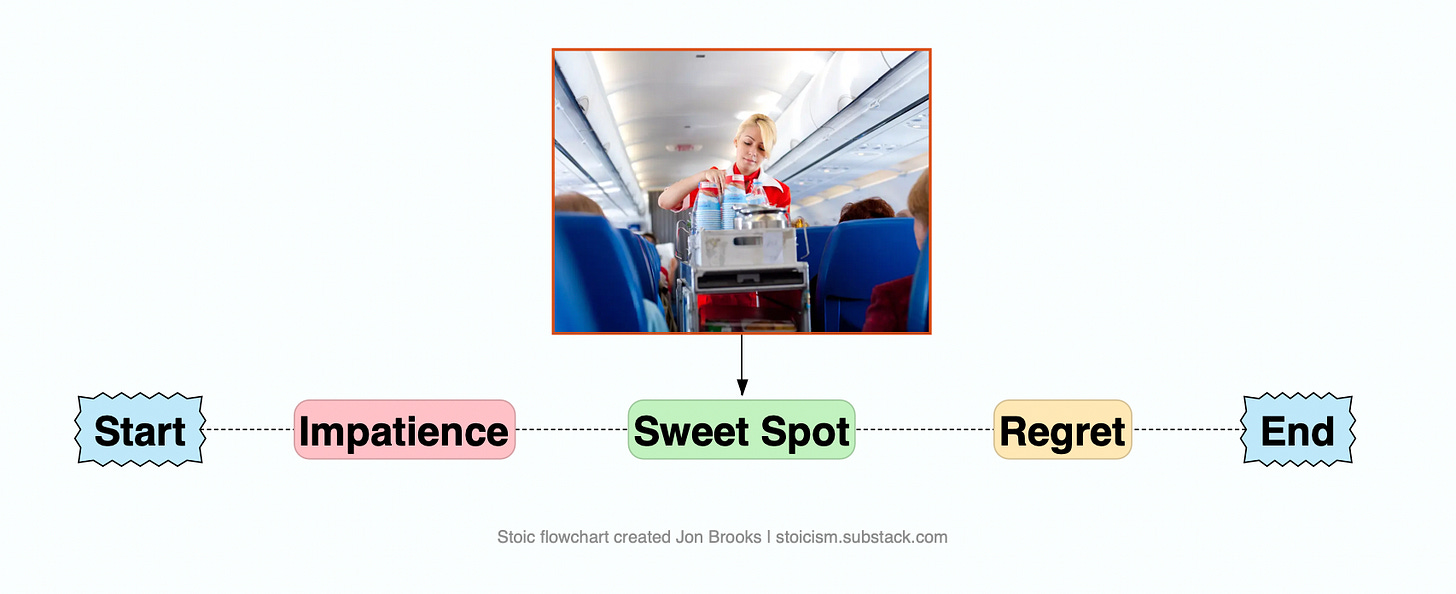Enchiridion Chapter 15 / 53
The Stoics were excellent writers, and very skilled at using analogy to get their points across.
In Chapter 15 of Epictetus’ handbook, he teachers us how to think about our relationship to external things.
Epictetus believes that there are three stages to mastering our attachments to externals:
- Attached to externals (enslaved)
- Moderation with externals (wise)
- No concern for externals (divine)
The first step for all of us, is to practice moderation. This is a balanced approach to life.
But he also reveals, that if we wish to go beyond this and enlighten ourselves with the powers of divinity, we can.
I/ Stoic Moderation
Act in life as you would act in an airplane waiting for your food.
If it has already passed you, and you feel regret don’t cause a commotion and pull the flight attendant back.

If you are waiting for the food to get to your row, exercise calm patience until it reaches you.

When the food or drink comes round and is offered, reach out and recieve some politely.
This is the sweet spot.

If you adopt this manner of acceptance and patience with your family, finances, and status, you be welcomed to the same table as the Stoic Gods.
II/ Stoic Divinity
If you go even further and refuse these tempting goods no matter when they are offered, you will not just sit next to the Stoic Gods, you will gain their powers.
Self-discipline and restraint can be a direct gateway to liberation and divinity.
When you no longer concern yourself with externals, everything that happens becomes something you have chosen, and therefore created… by you.
When you are able to choose everything that happens in every moment to be exactly as it is, the world no longer happens to you, but is you.
ENCHIRIDION CHAPTER FIFTEEN, EPICTETUS, TRANSLATION BY ROBERT DOBBIN:
“Remember to act always as if you were at a symposium. When the food or drink comes around, reach out and take some politely; if it passes you by don’t try pulling it back. And if it has not reached you yet, don’t let your desire run ahead of you, be patient until your turn comes. Adopt a similar attitude with regard to children, wife, wealth and status, and in time, you will be entitled to dine with the gods. Go further and decline these goods even when they are on offer and you will have a share in the gods’ power as well as their company. That is how Diogenes, Heraclitus and philosophers like them came to be called, and considered, divine.”
